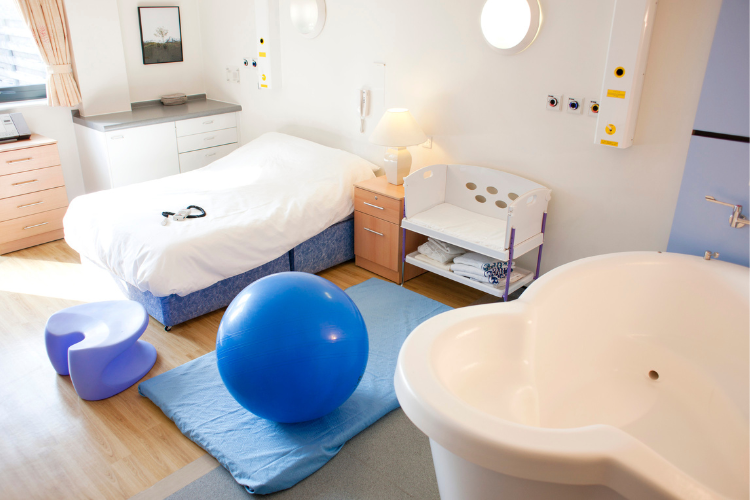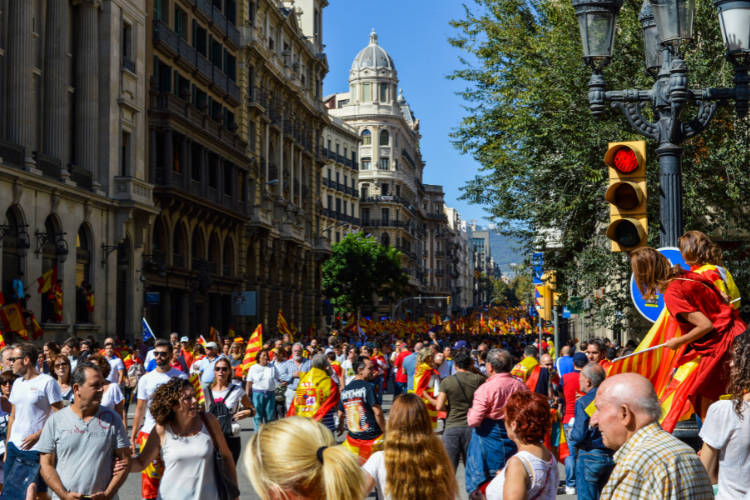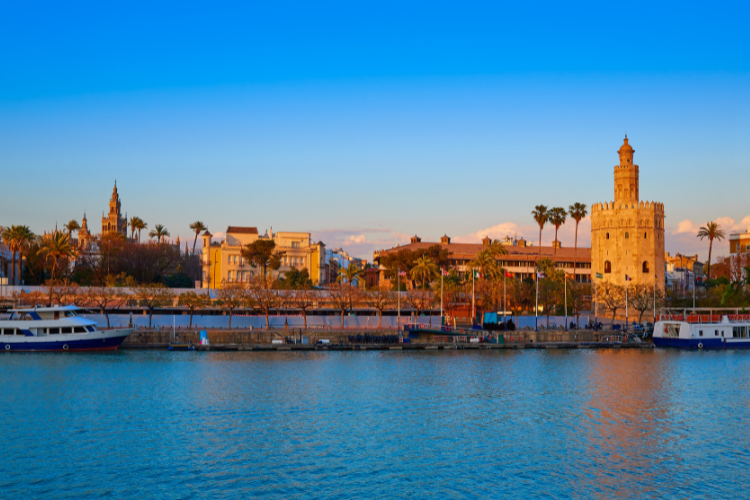Last Updated on October 28, 2024 by Laila Oliveira
Bringing life to the world is a special occasion for any parent. After the long nine-month wait full of fatigue and unannounced vomiting, holding your child in your hands surely makes up for all that trouble. As a foreigner interested in spending the rest of your years in Portugal, having children might be in your plans. This article will prepare you for what it’s like to give birth in Portugal!

This sunny European country is a great place to have children. The birth rate is so low that the government is deliberately encouraging childbirth by offering incentives in the country. In fact, according to data from Pordata, the average child per woman in Portugal is about 1.43.
That said, what is giving birth in Portugal like for expats? What is healthcare like? Do you need insurance to give birth in Portugal? If you need answers to these questions, this post is for you. We attempt to shed some light on the intricacies that go into the process of the entire birth process. Happy reading!
What is healthcare in Portugal like?
Healthcare in Europe is known to be among the best in the world. It is well-socialized, meaning that public medical care is more popular than the alternative, except for a few exceptions.
Portugal is also no different; while there are both private and public healthcare options, the latter is by far the most popular among the locals. The National Healthcare System, better referred to as Sistema Nacional de Saúde,is universal, meaning anyone in the country can access healthcare.
Portugal takes healthcare very seriously and tries to keep up with international standards. Per the World Index of Healthcare Innovation (WIHI), the quality of Portugal’s healthcare system ranks 22nd for in-patient care and medical infrastructure.
Public health care in Portugal is mostly free for citizens and foreigners from countries within the Euro Zone. However, for expats outside this zone, you must be a legal visa holder or have a valid residence card.
Also, you need to have a Número de Utente, a user number of the National Healthcare, to enjoy free public healthcare in Portugal.
Health Insurance in Portugal
Like anywhere in the world, private healthcare is expensive. So, if you need to attend a private hospital for specialized care or any other reason, you will need health insurance for co-paying.
While that is true, it is also worth mentioning that the fees are relatively lower than in other countries in Europe and beyond. The good news is that there are different plans with different pricing depending on your circumstances and needs. Health insurance is around €400 a year for a basic plan and up to €1,000 if you choose a more comprehensive plan.
On average, fees for private medical care are €15 per appointment and €35 per emergency. In addition, the insurance will also pay 90% of medical expenses for consultations, exams, surgeries, hospitalizations, and even childbirth. Of course, it all depends on your insurance.
Pregnancy and childbirth in Portugal
Pregnancy is challenging; however, getting the privilege of going through the journey in a country that guarantees proper healthcare and a peaceful lifestyle makes it easier. Getting pregnant and giving birth in Portugal has its perks, some of which you might not find in other places worldwide.
To begin, pregnant women, whether citizens or expats, have equal rights, provided they have stayed in the country for more than 90 days. One of the main perks is access to certain prenatal care services in public hospitals, such as free consultations extending 60 days post-partum.

However, before accessing any of the services mentioned above, you must register with your local hospital beforehand. Usually, it is important to schedule your first appointment as early as 12 weeks. Appointments are every 4-6 weeks until week 30, then more frequent visits, typically every 2-3 weeks until week 36, for comprehensive prenatal care.
When you are ready for delivery, usually during the 40th week, your doctor will refer you to a consultation at the hospital where you will give birth. You have the luxury of choice when it comes to the type of birth you prefer. This also extends to the type of anesthesia. Keep in mind that you can choose to give birth in a private hospital if you so wish.
Best hospitals
The beauty of giving birth in Portugal is that there are enough reliable hospitals to care for you during this delicate process. While you can get regular appointments and checkups from your local hospitals, here are other options from different cities in the country.
Lisbon:
- Hospital da Luz Torres de Lisboa (formerly British Hospital)
- CMIL – Clínica Médica Internacional de Lisboa
- Clínica Central do Bonfim
Porto:
- Hospital Cuf Porto
- Centro Hospitalar do Porto (Hospital Geral de Santo Antonio)
- Hospital Lusíadas Porto
Algarve:
Silver Coast:
Lagos:
Cascais:
Portimão:
- Hospital Particular do Algarve | Alvor
How much does it cost to give birth in Portugal?
If you choose to have children born abroad in a public hospital in Portugal, you will not have to pay for the services. Childbirth in Portugal is among the services that you receive at no cost at the public health system. However, should you choose to do the same in a private hospital, you must pay for medical care.
The good news is that with insurance, your medical bills will be paid for. Usually, the cost of giving birth in a private hospital will range from €2,900 to €6,000 depending on the particular hospital and the type of medical care provided during childbirth.
- Looking into private health insurance? Read our article on Health Insurance in Portugal: Top options for you.
Registering a birth in Portugal
Child registration needs to happen within 20 days of delivery in Portugal. You can easily do this process at the nearest Portuguese Civil Registry Office. If you don’t know the location, use this website to find one.
This service is also available (for free) through a government initiative known as Nascer Cidadao, accessible at the maternity ward where your child was born. Here are the documents you will need to present during the registration process:
- ID or Passport of the parents;
- A birth certificate provided by the maternity ward or the location where the birth occurred.
Several individuals can register a child’s birth, including the parents, a close relative, a legal representative of the parents, or a designated staff member at the birth location.
Let’s Move to Europe
With Viv Europe your plans for Europe will come to a reality
Will my child get Portuguese citizenship?
The acquisition of Portuguese citizenship for a child depends on various factors, including the parents’ citizenship status, the place of birth, and specific legal provisions. The child is eligible for Portuguese citizenship if one or both parents are Portuguese citizens. If at least one parent is a Portuguese citizen at the time of birth, the child will automatically acquire Portuguese citizenship through the right of blood.
Automatic citizenship is granted if, at birth, one parent resided in Portugal for five years. You will need to show proof during registration. Alternatively, a child can seek citizenship after residing in the country for six years. However, they must pass a Portuguese language test and have no convictions with a sentence exceeding three years.
Citizenship for children of Portuguese Citizens born outside of Portugal
Portugal follows the principle of jus sanguinis, which means that citizenship is primarily determined by descent, particularly from Portuguese parents. The birth of a child born outside of Portugal to Portuguese citizen parent(s) needs to be registered with the nearest Portuguese consulate/ embassy.
This registration is crucial for the child to obtain Portuguese citizenship. During the registration process, the parents must provide documents proving Portuguese citizenship.
This typically includes the parent’s Portuguese birth certificate or other relevant documentation. Lastly, Portugal allows dual citizenship, so a child born abroad to Portuguese parents can hold both Portuguese citizenship and that of the country of birth.
What is postnatal care like?
Immediately after registration and before release, you will be given medical documents with your past medical appointments and future ones. The future appointments will be for vaccinations and general wellness checks, which will be documented in a separate medical record book.
Finally, you will be given a hospital release form. It is common for new mothers to get a nurse visit just to check up on the baby a few days after birth. Extra postnatal classes may be possible at a cost by the hospital or other private institutions; be sure to contact your doctor for further direction.
Child Vaccines
The government, through the National Vaccine Program, requires your child to receive certain vaccines right from birth until the baby reaches 18 months old. Other than the hepatitis B vaccine at birth, the other two compulsory vaccines that your child needs are the tetanus and diphtheria shot.
Some children might also need a vaccine against tuberculosis. The vaccine program provides immunity against the following diseases: tuberculosis, diphtheria, tetanus, pertussis, poliomyelitis, Haemophilus influenza type b infection, hepatitis B, pneumococcal disease, meningococcal disease, measles, mumps, rubella, and human papillomavirus infection.
It is worth mentioning that the vaccines should be updated as the child grows. Failure to administer mandatory vaccines will mean that your child will not sit for any exam in an educational establishment.
Parental leave
Just like in other nations, employed parents, both men and women, are entitled to parental leave. Usually, parental leave is divided into two: initial and extended. Regarding initial leave, the mother must take at least 90 days off after birth in Portugal; the rest can be taken before delivery. The total number of days for parental leave is 120 days with 100% compensation in your salary from your employer.
Fathers, on the other hand, are also entitled to 20 days’ paternity leave with full pay. You can take 5 days off right after childbirth; the remainder must be used within six weeks.
It is also possible for parents to extend their parental leave by three months for 180 days. This is shared between the father and mother at a reduced rate of 83% of the total pay from your work. Alternatively, you can extend your maternity leave to 150 days, which is not shared between both parents, at a reduced rate of 80% of the total pay.
Nurseries and daycares
For some reason, Portugal is often bundled among those nations that rely on informal or family-based childcare. However, this cannot be further from the truth. In fact, close to 40% of children under two years make use of daycare for an average of 39 hours a week, which is quite impressive.
Parents can enroll their children in a nursery (berçário) from as early as three months to three years before moving them to preschool. Preschool is quite important among Portuguese citizens since about 93% of children go through this program.
Primary education begins at age six. If you want a more personalized approach to childcare, one viable alternative is to seek the services of a nanny. While there are both private and public daycare facilities in Portugal, the latter still needs to be developed compared to the former.
Expats choose to take their children to private daycares that are well staffed, not to mention English is also widely spoken in private daycare.

Is surrogacy legal?
The topic of surrogacy has been a controversial one in Portugal. In fact, about a decade ago, surrogacy was illegal and even criminalized under Portuguese law. However, there has been a recent change in legislation that allows surrogacy under given circumstances.
First, the surrogate must already be a mother, and the National Council must approve the surrogacy contract for Medically Assisted Procreation. Also, the surrogate can keep the baby for at least 20 days until the child is registered.
There are a lot of grey areas when it comes to surrogacy in Portugal; be sure to do extensive research or get in touch with professionals for proper advice.
Can gay couples adopt a child in Portugal?
Gay couples have not been able to adopt children for a long time in Portugal. However, that all changed in 2015 as a majority of the parliamentarians voted against former president Cavaco Silva’s veto.
Today, gay couples can adopt a child in Portugal, provided the child is not above the age of 15. After adoption, gay couples are also entitled to an adoption allowance that is not different from parental leave.
Is Portugal a good place to raise a family?
Ultimately, the decision to raise a family in Portugal depends on individual priorities and preferences. While that is true, Portugal also boasts of several good qualities that make it a good place to raise a family.
One of the benefits of raising a family in Portugal is the cost of living. As an expat, you will enjoy a relatively lower cost of living. Every coin stretches further than it would in your home country, affording your family a better life than you would otherwise have.
Also, Portugal provides cost-effective educational options and comprehensive healthcare services for children, establishing it as an excellent location for raising a family.
Portugal has a variety of international schools and a public education system. The country also offers higher education institutions, including universities. Lastly, Portugal is among the safest countries in the world, with a low crime rate, making it a good country to raise a family.
Do you need help navigating your life in Portugal?
There you have it, a detailed breakdown of what giving birth in Portugal is like for expats. We hope that this post has given you insight and shed enough light on the main things necessary for childbirth in Portugal.
If you need help moving and navigating your life in Portugal, our professionals at Viv Europe are more than happy to walk with you along this journey. Whenever you are ready, be sure to book a consultation with Viv Europe for expert guidance and help.
Consider joining our Facebook Group – All About Portugal For Expats to interact with a Portuguese parent who has gone through your situation. Learn more about the entire relocation and settling process.








